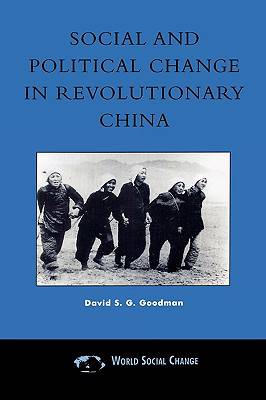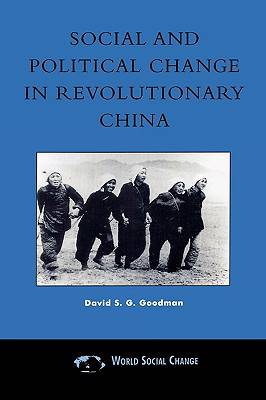
- Afhalen na 1 uur in een winkel met voorraad
- Gratis thuislevering in België vanaf € 30
- Ruim aanbod met 7 miljoen producten
- Afhalen na 1 uur in een winkel met voorraad
- Gratis thuislevering in België vanaf € 30
- Ruim aanbod met 7 miljoen producten
Zoeken
Social and Political Change in Revolutionary China
The Taihang Base Area in the War of Resistance to Japan, 1937-1945
David S G Goodman
€ 120,45
+ 240 punten
Uitvoering
Omschrijving
This history provides the first book-length study and the first county-level analysis of social and political change in the Taihang Base Area during the key years of the War of Resistance to Japan. David S. G. Goodman explores revolution as process, arguing that the CCP was successful because of its management of revolutionary incrementalism. In particular, he examines the roles and interactions of urban intellectuals, teachers, and peasant small-holders as agents of change. Based on newly available documents and interviews, this meticulously researched work deepens our understanding of the social and political origins of the Chinese revolution by considering how both the rural population and the party adapted within that process.
Specificaties
Betrokkenen
- Auteur(s):
- Uitgeverij:
Inhoud
- Aantal bladzijden:
- 384
- Taal:
- Engels
- Reeks:
Eigenschappen
- Productcode (EAN):
- 9780742508651
- Verschijningsdatum:
- 6/09/2000
- Uitvoering:
- Paperback
- Formaat:
- Trade paperback (VS)
- Afmetingen:
- 148 mm x 227 mm
- Gewicht:
- 453 g

Alleen bij Standaard Boekhandel
+ 240 punten op je klantenkaart van Standaard Boekhandel
Beoordelingen
We publiceren alleen reviews die voldoen aan de voorwaarden voor reviews. Bekijk onze voorwaarden voor reviews.











